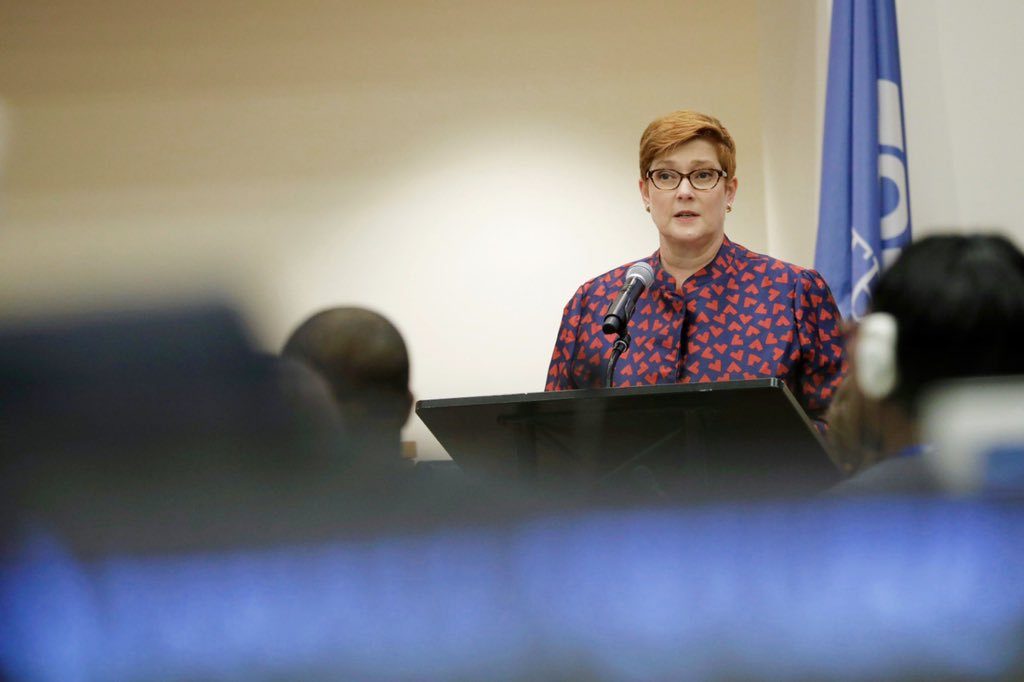FRESH AIR
Australia fails to sanction Iran while backing crumbling JCPOA
November 1, 2019 | Naomi Levin

In December 2018, Prime Minister Scott Morrison announced that Australia would “keep the option” of additional autonomous sanctions against Iran. But according to the Government, in the 11 months since then, that option has not been considered, much less pursued.
By any objective analysis, Iran has increased its nuclear weapons development, its missile program and its destabilising role in the Middle East in 2019. And in recent months it has been openly breached the Joint Comprehensive Plan of Action (JCPOA) nuclear deal reached in 2015.
However, despite the continued imposition of sanctions by the United States to try and curb Iranian misbehaviour, the Australian Government has taken no steps to sanction Iran.
In fact, incredibly, Australian officials are continuing to insist the failed Iran nuclear deal (JCPOA) is actually fulfilling its goals even as Iran breaks its terms.
Asked at Senate Estimates whether Australia continues to support the JCPOA, which Iran has openly breached, Foreign Minister Senator Marise Payne responded: “correct”.
A Department of Foreign Affairs and Trade (DFAT) official took the reins: “[The JCPOA] continues to meet non-proliferation objectives. We’re not a party to that arrangement, so we look to the parties to enforce it.”
How can the JCPOA be meeting its non-proliferation objectives when Iran itself has admitted to breaching the agreement?
The same DFAT official also confirmed that Australia is not actively considering increasing sanctions.
Foreign Minister Marise Payne added: “We always retain the discretion to review.”
In addition, Foreign Minister Payne refused to name Iran as the perpetrator of a major missile and drone attack on a key Saudi oil production facility, unlike key allies and in the face of overwhelming evidence.
These limp responses indicate that Australia is, at the moment, failing to take any serious stand against a regime that is hell-bent on destabilising the Middle East – and openly says it plans to destroy Israel.
There is one extenuating circumstance. It is worth noting that the Australian Government is taking a particularly delicate approach in its relationship with the Iranians, owing to the jailing of several Australians in Teheran prisons on trumped, or non-existent, charges.
However, the lack of Australian action continues to stand in contrast to the approach the US Administration has taken to autonomous sanctions on Iran.
The US maintains a comprehensive list of sanctions against Iran and its leadership.
This week, US Secretary of State Mike Pompeo placed a ban on construction materials, plus four other strategic materials, being exported to Iran. Pompeo said there was too high a risk that the Islamic Revolutionary Guard Corps, the military wing of the regime, is using these materials in connection with Iran’s nuclear, military and ballistic missile programs.
“As long as the Iranian regime continues to reject diplomacy and to expand its nuclear program, the economic pressure and diplomatic isolation will intensify,” Pompeo said.
RELATED ARTICLES

US Middle East strategy amid regional instability: Dana Stroul at the Sydney Institute

Antisemitism in Australia after the Bondi Massacre: Arsen Ostrovsky at the Sydney Institute





















